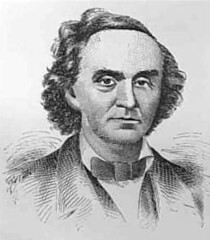 |
| Confederate bond |
- In Charleston, Missouri, the Battle of Charleston (Bird's Point) is a minor clash in which Union forces led by Col. Henry Dougherty destroy a Confederate camp. This skirmish is the culmination of several skirmishes in the Charleston and Bird's Point area for the past week between pro-Union forces and secession groups./1861
- Newspaper offices in Easton and West Chester, Pennsylvania, are seized by the Lincoln Administration for their supposed Southern sympathies. The editor of the Essex County Democrat in Haverhill, Massachusetts, is tarred and feathered for his pro-Confederate feelings/1861
- Trying to settle the political and military chaos in Missouri, the Confederate Congress in Richmond, Virginia, agrees to an alliance with Missouri's secessionist government The Congress also passes an Act authorizing the sale of Confederate Bonds. /1861
- US Assistant Secretary of the Navy Gustavus V. Fox orders 200 US Marines to report to Commander Dahlgren at the Washington Navy Yard for duty on board ships of the Potomac Flotilla for the purpose of scouting the Maryland countryside—especially Port Tobacco—for locations suspected of being Confederate depots for provisions and arms to be used for invading Maryland./1861
- In Washington, Henry Halleck is promoted to Major General./1861
























